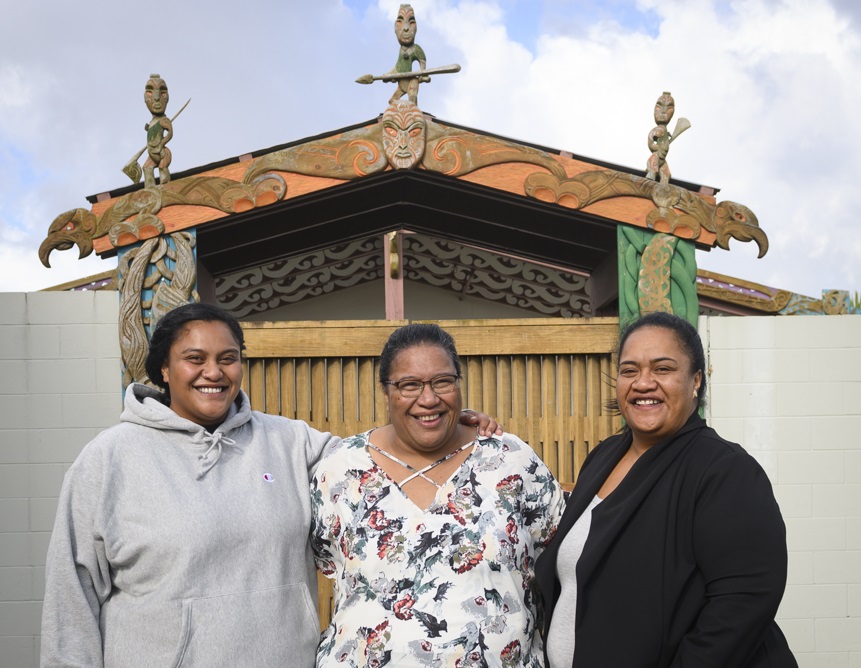Born to change lives
Published: July 19, 2019
A mother and her two daughters are using their whanaungatanga to create positive change for rangatahi in Youth Justice.
Following in their mother's footsteps
Maria (middle), mother of Taasha (right) and Ariana (left), was inspired to become a social worker after working as a cook at a youth justice residence in South Auckland in the 90s.
Now a Youth Justice supervisor in Papakura, she's confident her team can help change more lives as the youth offending age has been raised from 16 to 17.
“We already have experience working with 17 year olds who offend and we know they shouldn’t be imprisoned as they’re too vulnerable," Maria says.
"There’s a huge opportunity for us to help them understand the implications of their actions and right their wrongs.”
Growing up, Taasha and Ariana helped in the kitchen at the residence and this kick started their journey to becoming youth workers.
“I always asked to go to the units and meet the kids. Mum wouldn’t let me, but I was curious about why they were there," Taasha says.

Immersed in Youth Justice
Taasha is now Team Leader of Operations at the South Auckland Youth Justice Residence, Korowai Manaaki.
She’s also involved in the proposal for the nearby Whakatakapokai residence to support young people from Youth Justice.
This proposal is being considered in the Environment Court, and Taasha is working with the local community to help people understand the positive difference this can make.
“We have the chance to create a new environment for our rangatahi to help them transition back to their communities,” Taasha says.
“I’m wrapped about the opportunity to be involved. It feels like I’ve gone full circle having started there when I was a kid. I always knew I’d get into those units.”
Ariana was inspired by her mother and sister to get a job aged 19 at Te Maioha o Parekarangi residence in Rotorua. She’s since moved to South Auckland to work with rangatahi at Korowai Manaaki.
“Our whānau are so immersed in this space, it came as second nature to me to be around young people," Ariana says.
"I never judge them for their offences, but make sure they feel safe and know I’m here to help any way I can.”
Working together as a whānau
When the three of them work together, they are able to remove silos and share information to get quicker outcomes for rangatahi, Taasha says.
“It’s like a wrap-around service because of our connection and the aroha and experience we bring.
"Mum has truckloads of knowledge about the acts and regulations and often she also knows the young people and their plans.
"If they need to come to Korowai, I can help sort a placement for them here and Ari will work with them on the ground.”
Although Maria originally hoped her daughters would pursue a different career, she feels strengthened to have them working alongside her.
When we say it takes a village to raise a child, well I have my village here with my two daughters and we wrap this support around tamariki as much as we can.
Maria Toetoe
Guiding rangatahi down a better path
As a whānau, their values and practices are guided by te ao Māori, tikanga and kawa.
With the implementation of Section 7AA, they hope to see te ao Māori more widely represented in our way of working.
In particular, they hope Oranga Tamariki will invest more to help whānau, hapu and iwi establish themselves as providers to deliver services for tamariki Māori.
“They’re the ones qualified to do the mahi, but pūtea is a major barrier for them,” Taasha says.
It’s an exciting time to work with Oranga Tamariki and the biggest inspiration is the young people themselves, Ariana says.
“We are here to help guide them down a better path, and to have that opportunity and succeed is like being on cloud nine.
"Seeing them thrive and hearing their success stories is what gets us out of bed in the morning. It’s what we were born to do."

